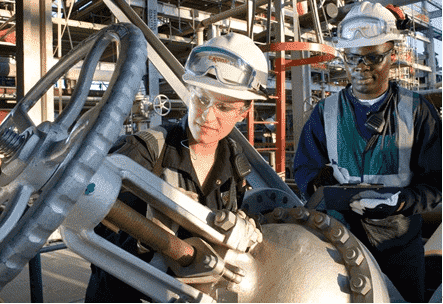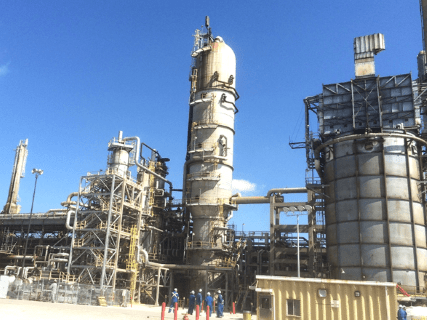COURSE OVERVIEW
PE0785 : Refinery Operational Economics, Planning & Profitability

OVERVIEW
| COURSE TITLE | : | PE0785 : Refinery Operational Economics, Planning & Profitability |
| COURSE DATE | : | Nov 02 - Nov 06 2024 |
| DURATION | : | 5 Days |
| INSTRUCTOR | : | Dr. Hesham Abdou |
| VENUE | : | Dubai, UAE |
| COURSE FEE | : | $ 5500 |
| Request For Course | ||
OTHER SCHEDULED DATES
| Date | : | Jan 26 - Jan 30 2025 (5 Days) | Location | : | Doha, Qatar | Classroom Fee (US$) | : | $ 6000 | Course Info |
| Date | : | Feb 01 - Feb 05 2025 (5 Days) | Location | : | Kuwait City, Kuwait | Classroom Fee (US$) | : | $ 5500 | Course Info |
| Date | : | Feb 02 - Feb 06 2025 (5 Days) | Location | : | Kuwait City, Kuwait | Classroom Fee (US$) | : | $ 5500 | Course Info |
| Date | : | Dec 06 - Dec 10 2025 (5 Days) | Location | : | Kuwait City, Kuwait | Classroom Fee (US$) | : | $ 5500 | Course Info |
| Date | : | Dec 07 - Dec 11 2025 (5 Days) | Location | : | Kuwait | Classroom Fee (US$) | : | $ 5500 | Course Info |
| Date | : | Dec 07 - Dec 11 2025 (5 Days) | Location | : | Kuwait City, Kuwait | Classroom Fee (US$) | : | $ 5500 | Course Info |
Course Description
The petroleum refining industry processes crude oil and produces a variety of products that are used in the transportation, residential, commercial, and industrial sectors of the economy.
In 2006, over two thirds of refinery output went to transportation uses, nearly a quarter went to industrial uses, and the remainder was used in residences, commercial activities, and electricity generation. The transportation sector remains the most heavily dependent on petroleum, drawing over 95% of its fuel needs from refineries.
Because the refining industry plays such a key role in providing energy for the economy, its structure and economic condition are matters of national interest. In recent years the industry has undergone significant change.
The traditional industry model, based on ownership by vertically integrated oil companies with profitability viewed within the context of a linked supply chain, has been altered by companies and joint ventures whose primary business is refining. Increasingly, the business model for these firms, as well as the integrated oil companies, is the standalone profit center.
Refiners now must earn market rates of return for investors, as well as returns sufficient to make investments in expansion, technological improvements, possible business restructuring, and to meet environmental regulations, both with respect to refined product specifications and refinery site operations and expansion.
The aim of this course is to provide participants with a complete and up-to-date overview of the refinery operational economics, planning and profitability. Upon the successful completion of this course, participant will gain a satisfactory understanding of the concepts of operational profitability, refinery configuration, planning objectives and tools, key crude and product qualities, crude and product pricing, practical refinery modelling, market dynamics, managing risk, performance measures and benchmarking. Actual case studies from around the world will be demonstrated to highlight the topics discussed.
Course Objectives
Upon the successful completion of
In 2006, over two thirds of refinery output went to transportation uses, nearly a quarter went to industrial uses, and the remainder was used in residences, commercial activities, and electricity generation. The transportation sector remains the most heavily dependent on petroleum, drawing over 95% of its fuel needs from refineries.
Because the refining industry plays such a key role in providing energy for the economy, its structure and economic condition are matters of national interest. In recent years the industry has undergone significant change.
The traditional industry model, based on ownership by vertically integrated oil companies with profitability viewed within the context of a linked supply chain, has been altered by companies and joint ventures whose primary business is refining. Increasingly, the business model for these firms, as well as the integrated oil companies, is the standalone profit center.
Refiners now must earn market rates of return for investors, as well as returns sufficient to make investments in expansion, technological improvements, possible business restructuring, and to meet environmental regulations, both with respect to refined product specifications and refinery site operations and expansion.
The aim of this course is to provide participants with a complete and up-to-date overview of the refinery operational economics, planning and profitability. Upon the successful completion of this course, participant will gain a satisfactory understanding of the concepts of operational profitability, refinery configuration, planning objectives and tools, key crude and product qualities, crude and product pricing, practical refinery modelling, market dynamics, managing risk, performance measures and benchmarking. Actual case studies from around the world will be demonstrated to highlight the topics discussed.
Course Objectives
Upon the successful completion of
TRAINING METHODOLOGY
This interactive training course includes the following training methodologies:
LecturesWorkshops & Work Presentations
Case Studies & Practical Exercises
Videos, Software & Simulators
In an unlikely event, the course instructor may modify the above training methodology for technical reasons.
VIRTUAL TRAINING (IF APPLICABLE)
If this course is delivered online as a Virtual Training, the following limitations will be applicable:
| Certificates | : | Only soft copy certificates will be issued |
| Training Materials | : | Only soft copy materials will be issued |
| Training Methodology | : | 80% theory, 20% practical |
| Training Program | : | 4 hours per day, from 09:30 to 13:30 |
RELATED COURSES

PE0115 : Process Plant Performance & Efficiency
- Date: Jan 05 - Jan 09 / 3 Days
- Location: Cairo, Egypt
- Course Details Register

PE0085 : Oil & Gas Field Operations, Start-up & Shutdown: Gas Processing, Hydrates, Dehydration, Sweetening, NGL Recovery & Fractionation, Oil Production, Desalting, Stabilization, Storage Tanks, Mixers, Meter Proving, Cargo Calculations, Flow Measurement, Start-up & Shutdown
- Date: Jan 05 - Jan 09 / 3 Days
- Location: Cairo, Egypt
- Course Details Register

PE0105 : Process Plant Optimization, Revamping & Debottlenecking
- Date: Jan 05 - Jan 09 / 3 Days
- Location: Dubai, UAE
- Course Details Register

PE0390 : Distillation-Column Operation, Control & Troubleshooting
- Date: Jan 05 - Jan 09 / 3 Days
- Location: Doha, Qatar
- Course Details Register
